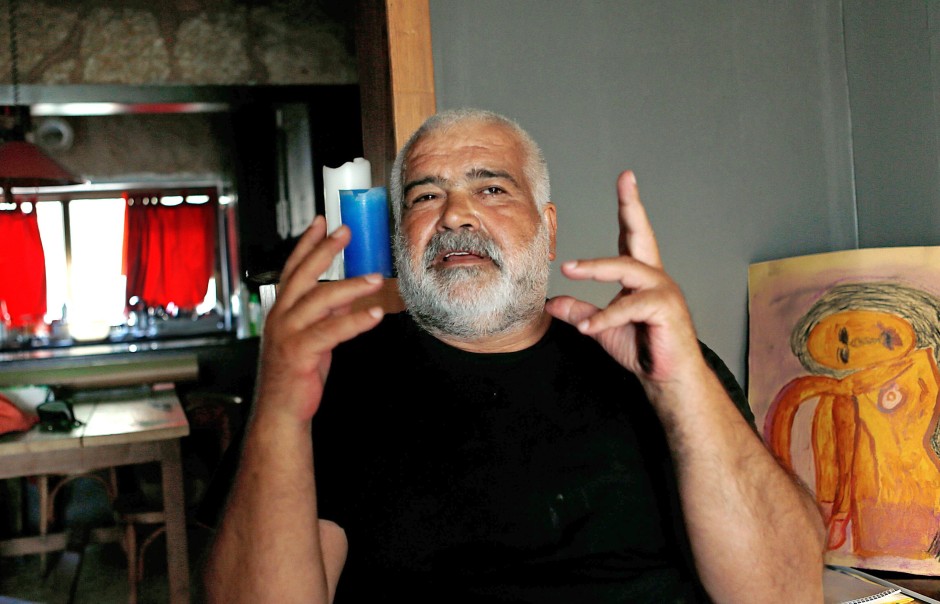
Et is the one question Khaled Khalifa keeps getting asked: “Why are you still in Syria?” After all, he is the only one of the well-known (and good) Syrian authors who has not yet left the country. And each time Khalifa answers the question differently. At his reading at the Berlin International Literature Festival in September, where he presented his latest novel “Nobody prayed at their graves” (Rowohlt), he answered her like this: “I’m a lazy person and migration is pretty exhausting.” he was born in Syria and would have lived there all his life. He couldn’t live anywhere else. Living, said Khalifa, doesn’t just mean existing, “it’s also about the question of where do you die?” There are many graves in Syria, including his mother’s grave. “I want to die in Syria and be buried next to my mother,” said Khaled Khalifa,
When I meet him in the café of the Literaturhaus Berlin and I ask him, “Why do you keep coming back to Syria?” he replies as a writer. The writer, he says, has to be with the people he is writing about. He has to have his language as an environment, and for him it is Arabic. He doesn’t have another one. “Sometimes I think how lucky I am to have this wonderful language.” Certainly, Arabic is not particularly popular in countries like Germany, it is primarily seen as the language of places of war and terror. “But for me it has a different meaning. I still don’t know all her secrets.”
The secret service at the door
Khaled Khalifa is a passionate writer. And it is very fortunate that three of his works are now available in German from Rowohlt Verlag, translated by Hartmut Fändrich and Larissa Bender. Born in Aleppo in 1964, he grew up with 13 siblings in a family originating from an Arab village in the Afrin region, famous for its olive trees. There have also been olive farmers in Khalifa’s family for generations. As soon as the olives are ripe, nomads hire the farmers for the harvest season – Khalifa has known this since childhood, as well as the process of oil production. He has written a novel about it (it is not yet available in German).
His family believed in communism, he says. As was common among party members around the world at the time, his family also saw great literature in Maxim Gorki’s “The Mother”. As a teenager, Khalifa caused a scandal when he openly admitted that he didn’t like the book. At the age of 14 he published his first poems, later he enrolled at the University of Aleppo in law. He told his family that he would rather be a writer. It was the beginning of a six-year struggle within the family. For his parents, writing meant above all: you have no money, but you have problems with the regime. And she already had enough of the latter because of two of her sons: one was in prison at the time, the other was wanted by the secret service, whose henchmen turned up at the family day and night. However, Khaled Khalifa did not give up his wish.
He wrote his first novel as a student, but burned it when he was finished: He had the impression that the work was someone else’s novel, the language not his, he says in Berlin. Instead of looking for a well-paying legal job, as his family would like, he wrote another novel. Eight hours a day, still at odds with his family. He also began writing screenplays for television. When he sold the first, at least the question of money was off the table. And then: entry into the glamorous film world, fame, even more money. And in his family’s village, the profession of author was suddenly seen as desirable. “Screenwriter, mind you,” says Khalifa and laughs, “not novelist.”









